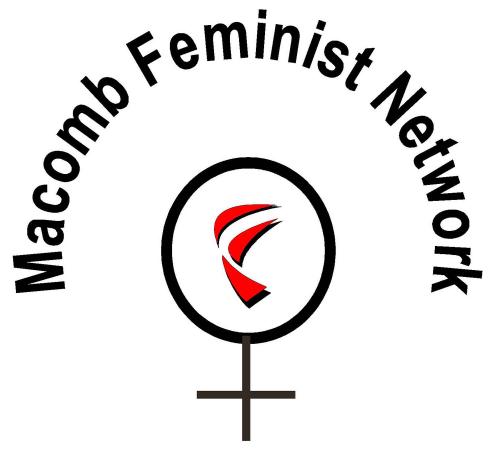University News
Macomb Feminist Network Honors Four �������ϲ���ʷ��¼ Emerita Faculty
February 13, 2018
MACOMB, IL - The Macomb Feminist Network has selected Sally Egler, Martha Klems, Maurine Magliocco and Paula Wise to receive its 2018 Writing Women into History Award.
The women, all �������ϲ���ʷ��¼ retirees, will be honored for their outstanding contributions to the local community at a reception between 10 a.m.-noon Saturday, March 3 at the Wesley Village Community Center.
According to English Professor Emeritus Janice Welsch, the Macomb Feminist Network established the Writing Women into History Award because women have often been overlooked in history. Through the award, the network seeks to expand public knowledge and appreciation of individual women whose initiatives, advocacy and engagement strengthened the local community in significant ways. This year's recipients, like previous recipients, excel as role models and community leaders, Welsch added.
Egler, beyond the impact she had during her 20 years as a teacher at Macomb High School and subsequently as a �������ϲ���ʷ��¼ Department of Communications instructor, has been active in the League of Women Voters. A member for 25 years, she has served as the League's vice president, as chair of the Voters Service Committee and the principal organizer of the forums the League sponsors to introduce voters to candidates seeking local elected offices. Egler has also been a member of the Macomb Zoning Board of Appeals, a volunteer at the West Central Illinois Arts Center, a reader for �������ϲ���ʷ��¼'s Radio Information Service, a member of the Community-University Partnership Program (CUPP) and a founding member of the Macomb Feminist Network. She received a Quality of Life Award for her leadership in changing city zoning codes to protect single-family neighborhoods.
Klems has been at the forefront of feminist and civic activism for decades. She began teaching at �������ϲ���ʷ��¼ in August 1980, in the math department, moving to the computer science department in 1983. Klems was appointed interim director of the Women's Center in 1994 and served until June 1995. Since joining �������ϲ���ʷ��¼'s faculty, Klems has been active in the Western Organization for Women, University Women, the Women's Center Advisory Board, the Macomb Feminist Reading Group and the Macomb Feminist Network. Klems has also brought her activism to her service on the Macomb School Board (2003-2011), the McDonough County Democratic Party, the county's Democratic Coalition and Indivisible, a grassroots organization promoting progressive political action in local, state and national government. Karen Sears, in her support letter, wrote that as a negotiator for non-tenure-track faculty at �������ϲ���ʷ��¼, Klems proved to be "sharp, flexible, balanced, thorough and articulate, qualities consistently reflected in her activities, whether these are primarily civic or political." She retired from �������ϲ���ʷ��¼ in 2012 after 32 years.
A faculty member in the �������ϲ���ʷ��¼ Department of English since 1967, retiring in 2004 after 37 years, Magliocco's impact on Macomb and �������ϲ���ʷ��¼ most notably revolves around her roles as the first director of �������ϲ���ʷ��¼'s Women's Center, as president of the University Professionals of Illinois (UPI), and as an advocate for justice and equity, Welsch described.
As director of �������ϲ���ʷ��¼'s Women's Center, she had to secure space and staff before beginning the many programs that provided support for women on campus and in the community, including leadership and diversity workshops and initiatives to counter domestic violence and sexual assault.
As president of UPI, a role that she served nine years, Magliocco worked with colleagues to strengthen the union's effectiveness by focusing on shared, issue-defined goals, Welsch said. In these roles, and as an advocate for multiple social justice issues, she has followed a similar path: thorough study followed by action to impact decision makers and legislative outcomes.
Wise, who joined the Department of Psychology faculty in 1977, directed the school's psychology program, developing the program to meet state and national accreditation standards and preparing students for professional careers. In her nomination letter, Sandy Nelson indicated that since Wise's retirement, she has poured her energy into numerous endeavors within the community.
She has served as co-chair of the Learning Is Forever (LIFE) program Curriculum Committee, a member, and president, of the Friends of the Macomb Public Library Board and chair of the Creative Elder Options Committee, which revises and distributes free booklets with information on area resources for older adults. Wise has also served as program chair/co-chair of the Centennial Morning Rotary Club and is a reader for �������ϲ���ʷ��¼'s Radio Information Service. An exceptional role model, she has spearheaded many efforts to meet the health, social and intellectual needs of the community, Welsch added.
These women join the women who have been honored previously with the Writing Women into History Award include Wanda Black, Mary Ellen Graff, Rosa Julestrom and Beth Stiffler (2010), Connie Berg, Marcia Moll and Ruth Parks (2011), Maria Dunstan, Judith Kohler and Donna Werner (21012), Josephine Johnson, Elizabeth Kaspar and Janice Welsch (2013), Gordana Rezab, Alice Swain and Mary Warnock (2014), Lois Ganyard, Margaret Ovitt and Suzan Nash (2015), Alice Henry, Alta Sargent and Peggy Scharfenburg (2016); and Lorraine Epperson, Debbie Maguire, Pamella McLean and Rebecca "Becky" Parker (2017).
The public is invited to join MFN members in honoring this year's award recipients at the March 3 reception. Following a light brunch, honorees will tell their stories of activism and civic commitment.
Posted By: Erika D Davis (�������ϲ���ʷ��¼News@wiu.edu)
Office of University Communications & Marketing


Connect with us: